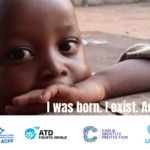
Improving birth registration to access early education
Child Identity Protection welcomes the opportunity to provide input for the study on ensuring quality education for peace and tolerance for every child as part of resolution 54/5, which is being coordinated by the Child and Youth Rights section within the Office of the UN High Commissioner for Human Rights. This submission is based on CHIP’s work including the Legal Atlas on birth registration currently being developed in collaboration with UNICEF/CHIP Legal Atlas, its work with UNICEF WCARO, as well as publicly available sources.
Having a birth certificate is often a requirement to enrol a child in school, including early education. It may also be a requirement, for a child to sit their end of primary school exams to enter secondary level education. As such, without a birth certificate, children may be excluded from accessing education or to complete it. As birth registration may be a requirement to access education, by increasing birth registration coverage, more children will be able to access/complete their education. Improving birth registration can occur by building on the interoperability between the Ministries responsible for civil registration and education. This can include establishing routine mechanisms for identification of students without birth registration, and regular catch-up registration in coordination between civil registration and educational authorities, as well as other relevant Ministries like Justice, Social Affairs etc.
Based on the right to legal identity, States should prioritise mechanisms to accelerate birth registration (i.e. decentralisation, inter-operability between Ministries and digitalisation), as an enabler for all children to access early education.






